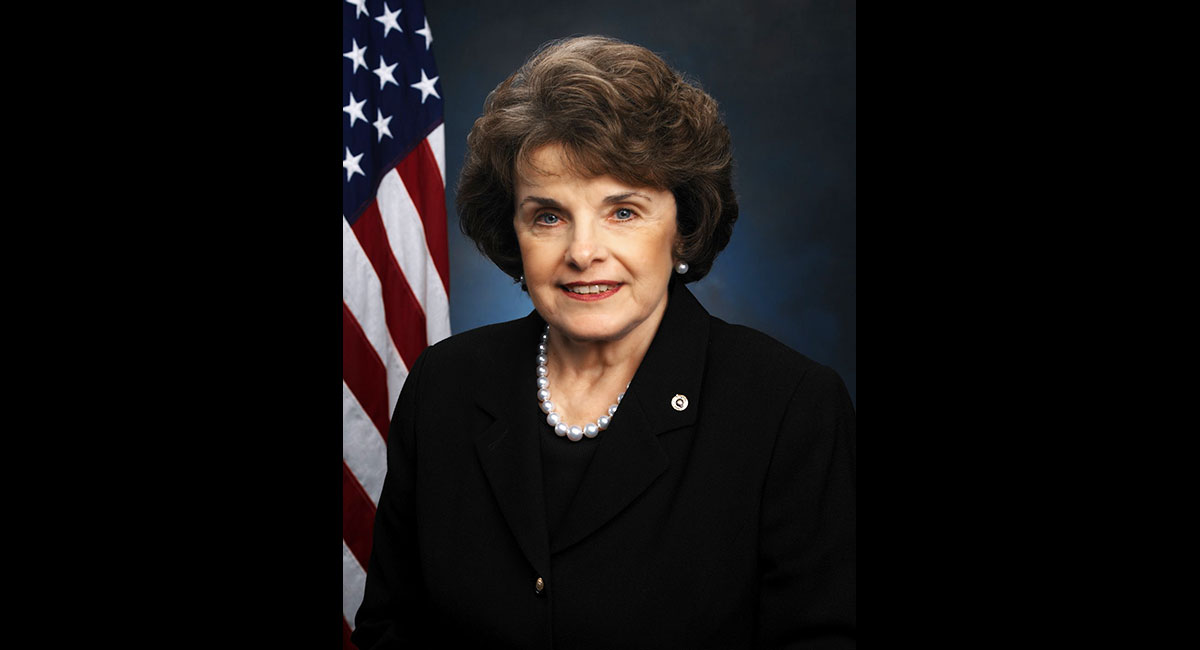With Dianne Feinstein’s passing, we lose a senator who governed with thoughtfulness, vision, and dignity. Californians will elect a new senator in the November 2024 general election. But the extreme partisanship that guides California state politics today leads me to have little hope that voters will elect a candidate with Feinstein’s qualities, particularly her commitment to the country over fealty to party-line political agendas.
Feinstein, a 1955 graduate of Stanford, made the following remarks about partisanship in a Stanford University commencement speech she gave in 1993: “I have been astonished by the primacy of partisanship—by the willingness, even when the nation is undeniably in trouble, to treat the great issues as occasions to score small points or attract a few voters.”
If more of those we elect shared Feinstein’s vision of bipartisanship, we would have a much better representative body, because those who have the ability to lead and affect positive change rise above the party line. But that simply is no longer what California politics is. And we, and the rest of the country, will be the worse for it.
Gavin Newsom has chosen Laphonza Butler to serve the remaining 15 months of Feinstein’s term. Butler leads Emily’s List, a political advising organization that supports pro-choice female political candidates. She also worked for many years as a union organizer and leader.
Newsom had promised to appoint a Black woman to fill Feinstein’s seat in the event Feinstein did not serve her full term, following his appointment of Alex Padilla to fill the remainder of Kamala Harris’s Senate term in 2021. At that time, Newsom faced considerable political pressure to appoint a Latino American, but he also faced pressure to appoint a Black woman to follow Harris. What we are seeing now is the political compromise that Newsom crafted. Thus far, it hasn’t served California particularly well.
Padilla was a controversial choice in 2021 to succeed Harris. In 2020, then California secretary of state Padilla was tasked to coordinate a $35 million county-level spending program to fund the distribution of information advising Californians of recent changes to voting procedures. Counties were to receive funding to do that locally. But Padilla did not follow that plan. Instead, he chose SKDKnickerbocker, a political consulting firm that specializes in working with Democratic politicians, to run the voter information program for the entire state.
Republicans objected to what was supposed to be a nonpartisan voter education initiative being run by perhaps the savviest Democratic political advisory firm in the country. Betty Yee, California’s controller at that time, refused to pay the $34 million bill to the consultants because Padilla did not have the legal authority to spend the funds on behalf of California counties. This led the editorial board of the Sacramento Bee to write an editorial titled, “If Gavin Newsom Picks Alex Padilla for the Senate, Who Owns His $34 Million Mess?”
Padilla, who was elected to a full term in 2022, is no Feinstein. He is considered one of the most partisan Democratic senators by Georgetown University’s Lugar Center for Public Policy and is ranked as the senator who is most committed to left/progressive politics based on his lifetime voting record as interpreted by Progressive Punch, an organization that tracks the political leanings of those in Congress.
Border issues illustrate the large differences in leadership, vision, and sensible priorities between Feinstein and Padilla. Feinstein consistently fought to secure US borders against illegal immigration, as she viewed illegal border crossings as leaving the country vulnerable to crime and national security issues. The Los Angeles Times highlighted her leadership in this area, noting “She has provided ‘cover’ for politicians of both parties, lending respectability to a sensitive area where it is easy to be branded a demagogue and a bigot.”
Padilla chairs the Subcommittee on Immigration, Citizenship, and Border Safety. Illegal border crossings have skyrocketed since 2016, rising over eight-fold since 2017, and are now averaging over 2 million per year along the US southern border. This is a national crisis, and Padilla’s responsibility is to provide leadership within the Senate to solve this problem. But Padilla has yet to even address this issue and instead blames those whose borders are overwhelmed with migrants, making the following statement about Texas governor Greg Abbott’s recent decision to bus 40 migrants from Texas to California:
“Once again, Republicans exploit vulnerable migrants for cynical political gain instead of choosing to work with Democrats to fix our broken immigration system. California will not play Republican’s [sic] cowardly games and will treat asylum seekers with the dignity and humanity they deserve.”
Feinstein was widely respected in the Senate because she rose above partisanship to lead. Padilla does not. He is emblematic of what partisanship has become in California.
Newsom’s appointment of Butler complicates the 2024 California Senate race, which includes Democrats Adam Schiff, Katie Porter, and Barbara Lee. Lee is a Black woman, but Newsom specifically did not consider her for appointment to Feinstein’s seat because he felt it would give her an unfair advantage over other Democratic candidates. Republicans running include former Los Angeles Dodger Steve Garvey, though California hasn’t elected a Republican to the Senate in 30 years.
Butler will join the Senate as the only senator without a law degree or ever having served previously within a legislative or governing body. Not so long ago, it would seem impossible that a person without a legal or legislative background would be a US senator. That qualification has now been broken in the name of partisan politics.
On the occasion of what would have been Reagan’s 100th birthday in 2011, Feinstein wrote the following about bipartisanship:
“If we remember Ronald Reagan with one sentence, let us remember him as one who took big ideas, a craft of words, and a conviction of freedom to change the world. . . . I hope we embody his spirit of bipartisanship to keep our country strong and united during one of the most critical moments in our history.”
Bipartisanship—as practiced by Reagan and Feinstein—is indeed needed to advance the country’s interests. But with Feinstein’s passing, we also lose some of the light of bipartisanship that she built, and I don’t see any evidence from within our one-party state that the person who will be elected to a full Senate term in 2024 will become the bipartisan leader that Senator Feinstein was.








